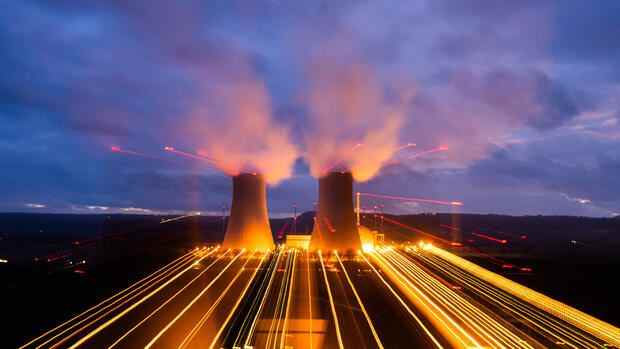National solutions to a global problem?
(Photo: dpa)
For years, experts have been calling for fossil fuels to become more expensive, the coal phase-out to be brought forward and the expansion of renewables to be accelerated. That is exactly what has now happened.
And it goes on: there is a CO2 price in Germany, coal should probably end by 2030, and the number of wind turbines and solar parks should multiply. That energy would become more expensive as a result was both foreseeable and politically desirable. However, the fact that an energy price crisis is shaking the world market at the same time is not.
Everywhere, the prices for electricity, oil and natural gas are rising at breathtaking speed. The situation is complicated. On the one hand, the CO2 price is rising sharply at European level. On the other hand, the global economy is recovering much faster than expected after the corona pandemic.
The production capacities for fossil raw materials, which have been scaled back significantly in the past two years because of a lack of demand, cannot keep up. So there is a shortage of raw materials – no matter where you look.
Top jobs of the day
Find the best jobs now and
be notified by email.
The situation is now more than tense for industry and consumers. Both sides are asking for help from politicians. And it delivers: Economics and Climate Protection Minister Robert Habeck has promised companies and consumers subsidies to defuse the situation. The only problem is that the world market cannot be subsidised. Especially not in Germany with its special path in terms of energy policy.
Scarcity will cause energy costs to rise for years
No matter how much money the new federal government is now putting into the announced aid, the situation will only ease up in the short term. We are talking about years of transition in which we have the following initial situation: The dependence on fossil raw materials is still high, but the supply is already becoming drastically scarce. That drives up energy costs.
In Germany alone, huge amounts of power will fall out of the grid within a few years due to an early phase-out of coal. Not to forget the exit from nuclear energy, which will also be completed this year.
At the same time, the expansion of renewables is progressing much too slowly. And even if it accelerates, the weak power grid will ensure that this will not be enough in the years to come.
This makes the situation in an energy-hungry industrial country like Germany particularly difficult when we already have the highest energy costs in Europe.
In no case should this be an argument against all these measures. They are right and important and, above all, long overdue. But what the federal government fails to recognize is that the problem cannot be solved alone.
This is what climate alliances could look like
Instead, international climate alliances are needed that take on exactly such issues and work on a solution for everyone. Because not only Germany is suffering from the energy price crisis, but the whole world. In China, too, some productions are eventually shut down because the energy is simply too expensive.
What many experts also warn about in general when it comes to climate change applies here: this historic challenge can only be mastered together. If the world community does not manage to make the transition from a fossil energy system to a green supply in a way that is manageable for the economy and consumers, the conversion will certainly not succeed.
More: Habeck wants to help electricity and gas customers: “For many people, this winter is a real burden”
